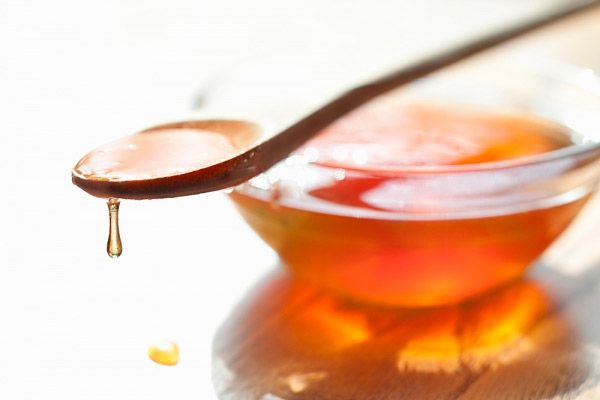
All iLive content is medically reviewed or fact checked to ensure as much factual accuracy as possible.
We have strict sourcing guidelines and only link to reputable media sites, academic research institutions and, whenever possible, medically peer reviewed studies. Note that the numbers in parentheses ([1], [2], etc.) are clickable links to these studies.
If you feel that any of our content is inaccurate, out-of-date, or otherwise questionable, please select it and press Ctrl + Enter.
Honey for psoriasis
Medical expert of the article
Last reviewed: 06.07.2025
Treatment of psoriasis is a complex process that includes special requirements for the menu and diet. In particular,
- the diet for psoriasis should be balanced;
- you need to eat often and in small amounts;
- Many foods must be excluded from the diet: chocolate, eggs, whole milk products, citrus fruits, vegetables with red pigment, as well as spicy, smoked, fatty, sour, sweet foods.
Is honey allowed for psoriasis?
"Can you have honey if you have psoriasis?" - the answer to this question is ambiguous. On the one hand, sweets, including bee honey, should not be present in the diet of a patient diagnosed with psoriasis; on the other hand, it has long been proven that bee products are quite effective in psoriasis, so even ancient doctors used them to treat this and other skin diseases.
Some experts consider sweet treats useful for psoriasis, in minimal doses, as a mild laxative – along with vegetables, fruits, vegetable oils. And the general trend in modern dermatology is also inclined to increase the use of fresh honey and related products; including because natural products are more useful than synthetic ones.
Benefits and harms of honey for psoriasis
Honey is one of the priceless gifts of nature, it is a real treasure trove of tasty, healthy, irreplaceable nutrients. It contains a whole complex of useful natural substances:
- enzymes,
- mineral salts,
- organic acids,
- vitamins,
- phytoncides.
Together, these ingredients have anti-inflammatory, antimicrobial and antiviral properties.
However, honey is not always eaten with a full spoon, as the proverb says. The benefits and harms of honey in psoriasis are determined by the method of its use. Thus, undoubtedly, the unique properties of the product in the case of this disease not only do not bring benefits, but can greatly harm, in particular, provoke an allergic reaction and exacerbation of the pathological process.
However, honey will be very useful for psoriasis – as a component of ointments and other preparations for external use. One of these ointments contains protein, celandine, petroleum jelly, baby cream and honey; when used, it reduces itching and peeling of the skin.

Studies have shown positive changes after applications of various types of pure honey or in combination with tar, sulfur, turpentine, and bischofite. Honey helps cleanse and restore problem areas, eliminate joint pain in psoriatic polyarthritis. To treat feet and palms, when the pathology is localized in these areas, a mixture of honey and glycerin 1:2 is applied, and honey baths are very useful for any localization of psoriasis.
Dermatologists also use the healing properties of other bee products. Thus, propolis is used to make medicinal creams and pastes, tinctures and extracts, propolis milk and other medications. Studies have shown the effectiveness of royal jelly-based tablets and ointments.
Beeswax and poison (apitoksin) are also used in ointments for psoriasis. In some countries, medicines with apitoxin are produced (apizartron, virapin, apitrit, apifor, reumapront).
Natural honey and other bee products are very beneficial for health. However, honey can be a strong allergen and cause undesirable consequences. It is not recommended to use honey internally for psoriasis at all, and external use of bee products should be done under the supervision of a doctor.


 [
[